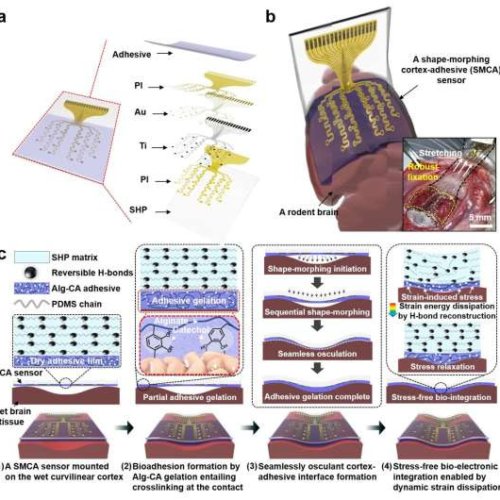by Dennis Thompson Some people develop epilepsy after surviving a stroke, as the injury they’ve sustained causes scarring and disorganized electrical activity in their brains. But one type of blood pressure medication seems to help stroke survivors avoid post-stroke epilepsy (PSE), according to a first-of-its-kind study presented Friday at the annual meeting of the American Epilepsy...
Tag: <span>epilepsy</span>
What to know about occipital lobe epilepsy
People with occipital lobe epilepsy (OLE) can experience seizures that affect their vision and other symptoms. While it is treatable, occipital lobe epilepsy symptoms can be similar to and mistaken for several other conditions. Epilepsy is a condition where a person can experience recurring seizures. Occipital lobe epilepsy (OLE) is a type of epilepsy that...
Epilepsy medication shows promise in reducing cocaine use in rats
by Stacy Pigott, University of Arizona Credit: CC0 Public Domain Substance use disorders are notoriously difficult to treat, as it is challenging to intervene in a drugs’ effect on the brain’s reward pathway without interfering with the pathway’s normal function. In a University of Arizona Health Sciences study, researchers identified a drug that reduced the desire...
Study: Risk for suicide two times higher for those with epilepsy vs. general population
by Elana Gotkine The prevalence of suicide is higher among those with epilepsy compared with the general population, according to a study published in the journal Epilepsy & Behavior. Sara Melin, from the Karolinska Institutet in Stockholm, and colleagues examined the incidence of suicide for people with epilepsy in Sweden and compared incidence with the general population. Overall,...
Study shows potential of optogenetics in treating epilepsy
by University of California, San Francisco HD-MEA recordings of human hippocampal slices. Credit: Nature Neuroscience (2024). DOI: 10.1038/s41593-024-01782-5 In what could one day become a new treatment for epilepsy, researchers at UC San Francisco, UC Santa Cruz and UC Berkeley have used pulses of light to prevent seizure-like activity in neurons.The study appears Nov. 15 in Nature Neuroscience. The...
Little-studied RNA might be key to regulating genetic disorders like epilepsy and autism
by Northwestern University A hairpin loop from a pre-mRNA. Highlighted are the nucleobases (green) and the ribose-phosphate backbone (blue). Note that this is a single strand of RNA that folds back upon itself. Credit: Vossman/ Wikipedia When a gene produces too much protein, it can have devastating consequences on brain development and function. Patients with an...
Computational model can predict epilepsy after rare stroke
Credit: Pixabay/CC0 Public Domain Researchers from 15 countries, led by Amsterdam UMC, have developed a way to predict which patients are at risk of epilepsy after a cerebral venous sinus thrombosis (CVT). CVT is a type of stroke that typically affects women between the ages of 20 and 50. The prediction model is now available worldwide free...
Largest-ever genetic study of epilepsy finds possible therapeutic targets
October 3, 2024 by Ari Navetta, Broad Institute of MIT and Harvard Epilepsy genetic architecture from large-scale genetic association studies. Credit: Nature Neuroscience (2024). DOI: 10.1038/s41593-024-01747-8The largest and most diverse study to date of epilepsy’s genetic factors has revealed new potential targets for treatment, both shared by and unique to different subtypes of epilepsy. The...
Researchers uncover genetic link between bipolar disorder type I and epilepsy
Sep 30 2024 A team of researchers from the Chinese Academy of Sciences has uncovered compelling evidence of a genetic link between bipolar disorder type I (BD-I) and epilepsy, potentially revolutionizing our understanding of these complex neuropsychiatric conditions. The study, published in Genomic Psychiatry on September 30, 2024, reveals shared genetic variants and a causal...
Adhesive cortical device enables artifact-free neuromodulation for closed-loop epilepsy treatment
September 19, 2024 by Institute for Basic Science Overview and operation principle of a shape-morphing cortex-adhesive (SMCA) sensor. Credit: Adapted from Nature Electronics (2024). DOI: 10.1038/s41928-024-01240-xA team of researchers has developed a soft cortical device that could revolutionize the treatment of epilepsy and other neurological disorders. The group is led by Professor Son Donghee and...

